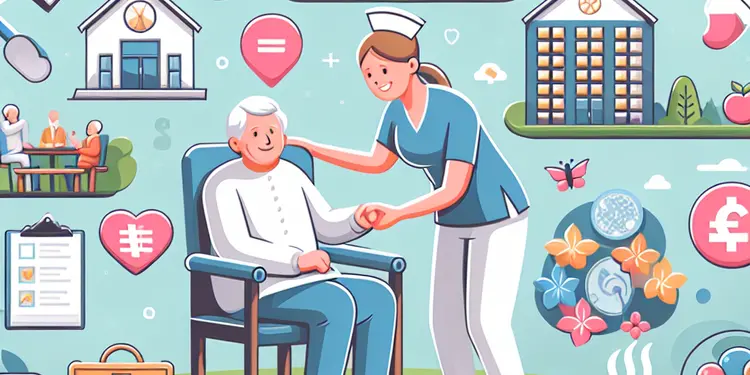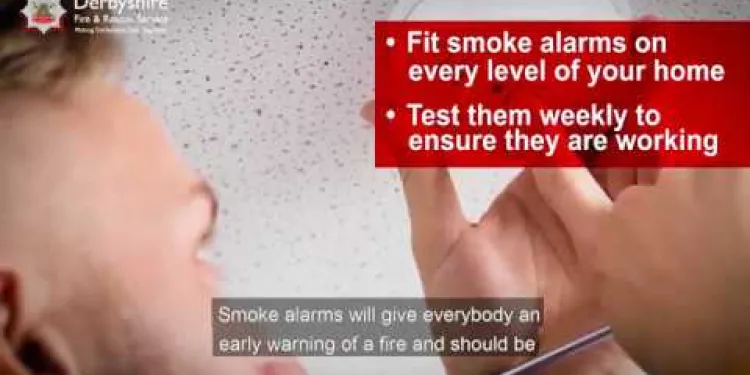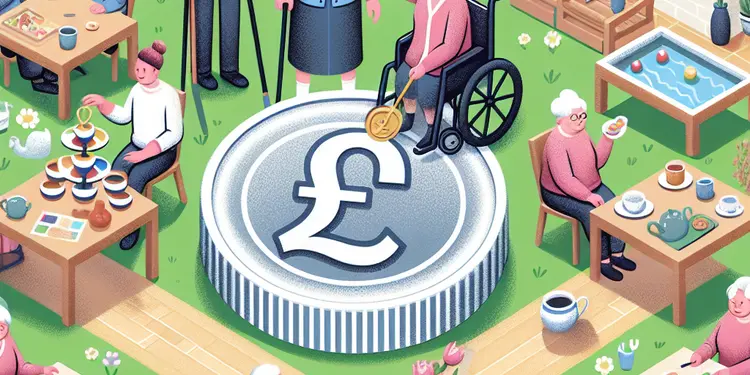Find Help
More Items From Ergsy search
-

The role of residential and nursing homes
Relevance: 100%
-

The role of residential & nursing homes
Relevance: 100%
-

How are care homes different from nursing homes?
Relevance: 67%
-

Are there different types of care homes?
Relevance: 63%
-

How do I choose a good nursing home?
Relevance: 61%
-

Do care homes provide medical care?
Relevance: 59%
-

What are Care Homes?
Relevance: 59%
-

Is live-in care an alternative to nursing homes?
Relevance: 58%
-

Dr Hilary Jones on Residential Care PART 1.
Relevance: 51%
-

How do I choose a good bursing home
Relevance: 50%
-

Dr Hilary Jones on Residential Care PART 2.
Relevance: 49%
-

What services do care homes provide?
Relevance: 49%
-

What qualifications do care home staff have?
Relevance: 45%
-

Can couples live together in a care home?
Relevance: 44%
-

How can I choose the right care home?
Relevance: 42%
-

Who can live in a care home?
Relevance: 39%
-

Home dialysis help for kidney patients
Relevance: 39%
-

Fire Safety At Home
Relevance: 38%
-

What is the Warm Home Discount?
Relevance: 37%
-

Home Haemodialysis - Donna's story
Relevance: 37%
-

Do I need a TV license for each TV in my home?
Relevance: 37%
-

Is the Warm Home Discount a loan?
Relevance: 37%
-

Are there grants for installing an electric vehicle charger at home?
Relevance: 37%
-

Are there home remedies for psoriasis?
Relevance: 37%
-

What is the cost of living in a care home?
Relevance: 36%
-

What is the value of the home charger installation grant?
Relevance: 36%
-

Can I have a funeral service at home?
Relevance: 36%
-

Are dietary needs accommodated in care homes?
Relevance: 35%
-

Are activities provided for residents in care homes?
Relevance: 35%
-

What are the visiting hours for care homes?
Relevance: 35%
-

Can you keep the ashes at home in the UK?
Relevance: 35%
-

When is the Warm Home Discount applied?
Relevance: 35%
-

Can mixed exercises be done at home?
Relevance: 35%
-

Can second homeowners apply for the Warm Home Discount?
Relevance: 35%
-

Building a Healthy Home Environment
Relevance: 35%
-

How do bed bugs enter my home?
Relevance: 35%
-

Can I receive the Warm Home Discount if I switch suppliers?
Relevance: 34%
-

Who is eligible for the Warm Home Discount?
Relevance: 34%
-

What are the benefits of having spiders in the home?
Relevance: 34%
-

Are there home remedies for chickenpox?
Relevance: 34%
The Role of Residential & Nursing Homes in the United Kingdom
Introduction to Residential and Nursing Homes
Residential and nursing homes play a critical role in the healthcare and social care framework of the United Kingdom. They provide essential services to individuals who require full-time care and support, especially elderly citizens and those with chronic health conditions. These facilities offer a safe and structured environment where residents can receive the medical attention, personal care, and social interaction they need.
Types of Care Offered
Residential homes primarily focus on providing personal care, which includes assistance with daily activities such as bathing, dressing, and meal preparation. Residents may also engage in recreational activities aimed at promoting well-being and social interaction. Nursing homes, on the other hand, offer a higher level of medical care. They are equipped to provide more complex medical support and employ trained nurses to assist with residents' healthcare needs, which can include administering medication, wound care, and medical monitoring.
Importance for Families and Communities
Residential and nursing homes are invaluable to families by offering a solution when in-home care is no longer feasible. They provide peace of mind, knowing that loved ones are in a secure environment with continuous access to professional care. Furthermore, these facilities often serve as community hubs, fostering socialization among residents and facilitating family visits and involvement through various events and activities, thereby reducing feelings of isolation and loneliness among the elderly.
Regulation and Quality Assurance
In the United Kingdom, residential and nursing homes are subject to strict regulations and regular inspections by the Care Quality Commission (CQC). This ensures that the facilities meet high standards of care, safety, and hygiene. The CQC's evaluations can guide families in making informed decisions when choosing a suitable home for their loved ones. Continuous professional development and training for staff are also mandated, ensuring that residents receive competent and compassionate care.
Future Perspectives
As the UK population ages, the demand for residential and nursing homes is expected to grow. The sector is adapting to these changes by expanding facilities, incorporating technological advancements for better care management, and emphasizing personalized care approaches. Additionally, there is an increasing focus on integrated care services that collaborate with NHS and local health services to offer a holistic approach to resident health and well-being.
The Role of Residential & Nursing Homes in the United Kingdom
What are Residential and Nursing Homes?
Residential and nursing homes are places where people can live if they need a lot of help and care. Many older people live here if they need someone to look after them all the time. These homes help people stay safe and healthy. The staff help people with things like taking medicine, eating, and having fun with others.
What Kind of Care Do They Provide?
Residential homes help people with daily tasks. This means helping with bathing, getting dressed, and making meals. They also have fun activities for people to enjoy. Nursing homes provide more medical care. They have nurses who can help people with medical needs. This includes giving medicine and taking care of any wounds.
Why Are These Homes Important?
These homes help families by taking care of loved ones when it is too hard to care for them at home. Families feel better knowing their loved ones are safe and well cared for. The homes also hold events for families to visit and join in activities, so people don’t feel lonely.
How Are These Homes Checked?
In the UK, there are rules to make sure these homes are good places to live. The Care Quality Commission (CQC) checks the homes to make sure they are safe and clean. The CQC gives information to help families choose the right home. Staff in these homes get training, so they know how to care for people properly.
What About the Future?
As more people in the UK get older, more residential and nursing homes will be needed. These homes are changing to get even better. They are using new technology to look after people well. They also work closely with doctors and local health services to give the best care possible.
Frequently Asked Questions
What is the difference between residential and nursing homes?
Residential homes provide accommodation and personal care for those who may need support with daily activities such as bathing and dressing. Nursing homes offer the same level of personal care but also have qualified nurses on-site 24/7 to provide medical care for complex health needs.
Who can benefit from living in a residential or nursing home?
Older adults who have difficulty managing at home due to physical or cognitive impairments often benefit from residential or nursing home care. Those with complex medical needs benefit more from nursing homes due to the presence of trained nursing staff.
How do I choose the right residential or nursing home?
Consider the level of care needed, location, cost, services offered, and the home's reputation. Visiting facilities, reading reviews, and speaking with staff and residents can help determine the best fit.
What services are typically offered in a residential home?
Services in residential homes usually include personal care, meal provision, laundry service, social activities, and assistance with medication. Some may offer additional specialized services.
Are residential and nursing homes regulated in the UK?
Yes, both residential and nursing homes in the UK are regulated by the Care Quality Commission (CQC) in England, Care Inspectorate Wales, Care Inspectorate in Scotland, and the Regulation and Quality Improvement Authority (RQIA) in Northern Ireland.
How is care in nursing homes funded in the UK?
Care can be funded through a combination of personal finances, local authority funding, and, if eligible, NHS continuing healthcare funding. Means-tests are used to determine eligibility for financial support from local authorities.
Can residents continue seeing their own doctors while in a residential or nursing home?
Yes, residents have the right to continue seeing their own GP if practical. However, many homes have visiting GPs who regularly attend to residents’ medical needs.
What is the role of staff in residential homes?
Staff in residential homes provide personal care, support with daily activities, oversight of medication, and facilitate social and recreational activities to enhance residents' wellbeing.
Can couples live together in the same room in a residential or nursing home?
Yes, many homes offer double rooms or can accommodate couples in adjacent rooms if preferred, allowing them to live together or near each other.
Are visits from family and friends allowed in residential and nursing homes?
Yes, most homes encourage visits from family and friends as it contributes positively to residents' wellbeing. Visiting hours and policies can vary between homes, especially in response to health guidelines.
What activities are typically available in residential and nursing homes?
Activities vary but often include arts and crafts, exercise classes, music therapy, games, social events, and outings, all designed to enhance residents' quality of life.
How are meals managed in residential and nursing homes?
Meals are generally prepared on-site by catering staff. Homes aim to provide balanced, nutritious meals and can often cater to special dietary requirements.
What should I do if I'm not satisfied with the care received in a residential or nursing home?
Start by discussing concerns with the home’s management. If the issue is not resolved, you can escalate it to the local authority or the appropriate regulatory body, such as the CQC in England.
Can residents bring personal belongings to residential or nursing homes?
Yes, residents are encouraged to bring personal belongings to make their space feel more like home, as long as it’s within the available space and policies of the home.
How do I arrange for a stay in a residential or nursing home?
Arrange for an assessment of needs by the local authority to determine care requirements. Visit potential homes, understand the costs, and arrange for financial support if eligible before making a decision.
What is the difference between places people live and places people get nursing care?
Residential homes are places where people can live and get help with daily things like washing and getting dressed. Nursing homes are similar but have nurses there all the time to help with medical needs.
Who will find it helpful to live in a residential or nursing home?
Living in a residential or nursing home can help:
- Older people who find it hard to live alone.
- People who need help with daily tasks like washing and dressing.
- Anyone who needs medical care every day.
- People who feel lonely and want company.
If you or someone you know might need this help, it is a good idea to talk to a doctor or a social worker. They can give advice and support to find the best place to live.
Older people who find it hard to live at home because of health problems may need to live in special homes. There are two types: residential homes and nursing homes.
Residential homes help with everyday tasks like eating and dressing.
Nursing homes are for people who need more help because they have serious health problems. In nursing homes, nurses can take care of them.
If you or someone you know needs help, talk to a doctor or a nurse. They can help you decide which home is best.
You can also use tools to remember things. Try using a calendar or setting alarms on a phone to help with daily tasks.
How can I pick the best home to live in?
Think about these things when choosing a care home: how much care you need, where it is, how much it costs, what services they have, and if people say it is good. You can visit the homes, read what others say about them, and talk to the people who work and live there. This will help you find the best one for you.
What help can you get in a care home?
Care homes are places where people live and get help. Here is some help you might get:
- A safe and clean place to stay.
- People to help with washing and dressing.
- Meals every day.
- Help with taking medicine.
- Fun things to do, like games and activities.
- People to talk to and make friends.
If you need more help with reading, you can ask a family member or use a tool that reads out loud to you.
People living in residential homes get help with different things. They get help with personal care, like washing and dressing. They get their meals cooked for them. There is a laundry service to wash clothes. They can join fun activities with others. They also get help with taking medicine. Some homes have extra special services too.
Tips for understanding:
- Break the text into smaller parts.
- Use images or pictures to explain ideas.
- Ask someone to read with you or explain things.
Do people check on care homes in the UK?
Yes, there are people who check care homes in the UK.
They make sure everyone is safe and looked after.
If you want to know more, you can use tools like picture books or ask someone to help explain it to you.
Yes, care homes and nursing homes in the UK are checked by special groups. In England, it is the Care Quality Commission (CQC). In Wales, it is the Care Inspectorate Wales. In Scotland, it is the Care Inspectorate. In Northern Ireland, it is the Regulation and Quality Improvement Authority (RQIA).
Who pays for care in nursing homes in the UK?
In the UK, different people or groups pay for nursing home care. This depends on your needs and money.
Here are the main ways:
- Government Help: The government might help pay if you do not have much money. They will look at your savings and income to decide.
- Savings or Income: You might use your own savings or income to pay. This happens if you have enough money.
- Family Support: Sometimes, family members can help pay for the care.
Helpful Tips:
- Talk to a social worker for advice. They can help you understand what to do.
- Check online tools that explain how to pay for care. These tools can make it easier to learn.
You can pay for care in different ways. You might use your own money, get help from the local council, or get help from the NHS if you qualify. They use tests to see if you can get money help from the council.
Can people still see their own doctor when living in a care home?
Yes, you can still see your own doctor when you live in a care home.
If you are moving to a care home, ask the care home staff for help. They can talk to your doctor and help you.
It's a good idea to make a list of your health needs. You can use pictures or simple words to understand better.
Yes, people living in the care home can still see their own doctor if possible. But, many care homes also have doctors who come to visit and help the people living there.
What do staff do in residential homes?
Staff in residential homes help people live happily and safely. They take care of those who need extra help every day. Here are some of the things staff do:
- Help with washing, dressing, and eating.
- Make sure people take their medicine.
- Plan fun activities and games.
- Keep the home clean and tidy.
- Talk and listen to residents if they need someone to chat with.
To understand better, you might like:
- Listening to stories or watching videos about residential homes.
- Using pictures to see what staff do.
- Asking someone to explain things in simple words.
People who work in care homes help look after people. They help with washing and dressing, remind them to take their medicine, and help with fun activities. This makes sure that people in the home feel happy and healthy.
Can couples stay in the same room in a care home?
A couple means two people who love each other, like husband and wife or partners. Sometimes, these people want to stay together in a care home.
Some care homes let couples stay in the same room. But not all homes are the same, so it’s important to ask.
Here are some tips:
- Ask the care home if they have rooms for couples.
- Visit the home to see the rooms and meet the staff.
- Make sure the home feels right for both of you.
If you need help understanding, you can ask someone you trust to talk with the care home for you.
Yes, many homes have rooms for two people. Couples can stay in the same room, or in rooms next to each other if they want to.
Can family and friends come to visit people in care homes?
Yes, family and friends can visit people in care homes. It's nice to see loved ones!
Sometimes, there might be rules to keep everyone safe and healthy. These rules help stop the spread of germs.
It's a good idea to call the care home first. They can tell you the best time to visit and what you need to do.
You can also use video calls if you can't visit in person. This way, you can still see and talk to each other.
Yes, you can usually visit family and friends in most homes. Visiting makes people feel happy. Each home might have different visiting times and rules. Sometimes these change because of health advice.
What fun things can you do in care homes?
People in care homes can do many fun things. Here are some of them:
- Art and Crafts: Make and paint things.
- Games: Play cards, board games, or puzzles.
- Music and Dancing: Listen to music or dance.
- Gardening: Plant flowers and take care of them.
- Exercise: Join in simple exercises to keep fit.
- Reading: Read books or listen to stories.
Support Tips:
Some people might find tools like picture guides or stories with pictures helpful. Carers can also explain activities step by step.
People do different fun things like arts and crafts, exercise, music time, playing games, parties, and trips. These activities help make life better for the people who live there.
How do people get their meals in care homes?
Care homes help people who live there with their food. Here is how they do it: - They have set times for breakfast, lunch, and dinner. - They make sure the food is healthy and tastes good. - They can help people choose what they want to eat. - Some people might need help to eat, and that's okay. If you have any worries, you can talk to the staff. You can use pictures or cards to help choose your meals.People usually make meals in the kitchen at the home. They try to give healthy food. They can also make special meals if you need them.
What can I do if I am not happy with the care in a nursing home?
If you are not happy with how you or someone else is being cared for in a nursing home, here are some things you can do:
- Talk to someone: Tell a friend, family member, or staff member about what is wrong.
- Write it down: Make a list of the things you are not happy about. This can help you remember.
- Ask for help: There are people and groups that can help you, like an advocate. An advocate is someone who can speak up for you.
Remember, it is okay to ask questions and tell people how you feel. Your safety and happiness are important.
First, talk to the people in charge at the home about your worries. If they don't fix the problem, you can tell someone higher up, like the local council or a group that checks care homes, like the CQC in England.
Can people bring their own things to live-in care homes?
Yes, you can bring your own things when you move to a care home. It's nice to have your favorite items with you, like photos and soft toys.
Bring things that make you happy and feel like home. It makes your new room comfy and special.
If you need help understanding or packing, ask a friend or family member. They can help you choose what to bring.
Using pictures or a checklist can make it easier to remember what you want to take with you.
Yes, people living here can bring their own things. This helps make their room feel like home. Make sure the things you bring fit in the space and follow the home's rules.
How can I plan a stay in a care home?
A care home is a place where people live if they need help looking after themselves.
To stay in a care home, here are some steps you can follow:
- Talk to someone: Ask for help from a family member, friend, or social worker.
- Learn about care homes: Find out what care homes are like. You can visit or look online.
- Choose a care home: Think about what you need and what each care home offers. Pick the one that is best for you.
- Check the cost: Ask how much it will cost to live there. Find out if you can get help to pay.
- Get the paperwork: Fill in the forms you need to stay in the care home.
If you need extra help, ask someone you trust to go through this guide with you.
Get help from the local council to find out what care you need. Visit different care homes, learn how much they cost, and see if you can get money help before you choose one.
Useful Links
This website offers general information and is not a substitute for professional advice.
Always seek guidance from qualified professionals.
If you have any medical concerns or need urgent help, contact a healthcare professional or emergency services immediately.
- Ergsy carfully checks the information in the videos we provide here.
- Videos shown by Youtube after a video has completed, have NOT been reviewed by ERGSY.
- To view, click the arrow in centre of video.
- Most of the videos you find here will have subtitles and/or closed captions available.
- You may need to turn these on, and choose your preferred language.
- Go to the video you'd like to watch.
- If closed captions (CC) are available, settings will be visible on the bottom right of the video player.
- To turn on Captions, click settings .
- To turn off Captions, click settings again.
More Items From Ergsy search
-

The role of residential and nursing homes
Relevance: 100%
-

The role of residential & nursing homes
Relevance: 100%
-

How are care homes different from nursing homes?
Relevance: 67%
-

Are there different types of care homes?
Relevance: 63%
-

How do I choose a good nursing home?
Relevance: 61%
-

Do care homes provide medical care?
Relevance: 59%
-

What are Care Homes?
Relevance: 59%
-

Is live-in care an alternative to nursing homes?
Relevance: 58%
-

Dr Hilary Jones on Residential Care PART 1.
Relevance: 51%
-

How do I choose a good bursing home
Relevance: 50%
-

Dr Hilary Jones on Residential Care PART 2.
Relevance: 49%
-

What services do care homes provide?
Relevance: 49%
-

What qualifications do care home staff have?
Relevance: 45%
-

Can couples live together in a care home?
Relevance: 44%
-

How can I choose the right care home?
Relevance: 42%
-

Who can live in a care home?
Relevance: 39%
-

Home dialysis help for kidney patients
Relevance: 39%
-

Fire Safety At Home
Relevance: 38%
-

What is the Warm Home Discount?
Relevance: 37%
-

Home Haemodialysis - Donna's story
Relevance: 37%
-

Do I need a TV license for each TV in my home?
Relevance: 37%
-

Is the Warm Home Discount a loan?
Relevance: 37%
-

Are there grants for installing an electric vehicle charger at home?
Relevance: 37%
-

Are there home remedies for psoriasis?
Relevance: 37%
-

What is the cost of living in a care home?
Relevance: 36%
-

What is the value of the home charger installation grant?
Relevance: 36%
-

Can I have a funeral service at home?
Relevance: 36%
-

Are dietary needs accommodated in care homes?
Relevance: 35%
-

Are activities provided for residents in care homes?
Relevance: 35%
-

What are the visiting hours for care homes?
Relevance: 35%
-

Can you keep the ashes at home in the UK?
Relevance: 35%
-

When is the Warm Home Discount applied?
Relevance: 35%
-

Can mixed exercises be done at home?
Relevance: 35%
-

Can second homeowners apply for the Warm Home Discount?
Relevance: 35%
-

Building a Healthy Home Environment
Relevance: 35%
-

How do bed bugs enter my home?
Relevance: 35%
-

Can I receive the Warm Home Discount if I switch suppliers?
Relevance: 34%
-

Who is eligible for the Warm Home Discount?
Relevance: 34%
-

What are the benefits of having spiders in the home?
Relevance: 34%
-

Are there home remedies for chickenpox?
Relevance: 34%


